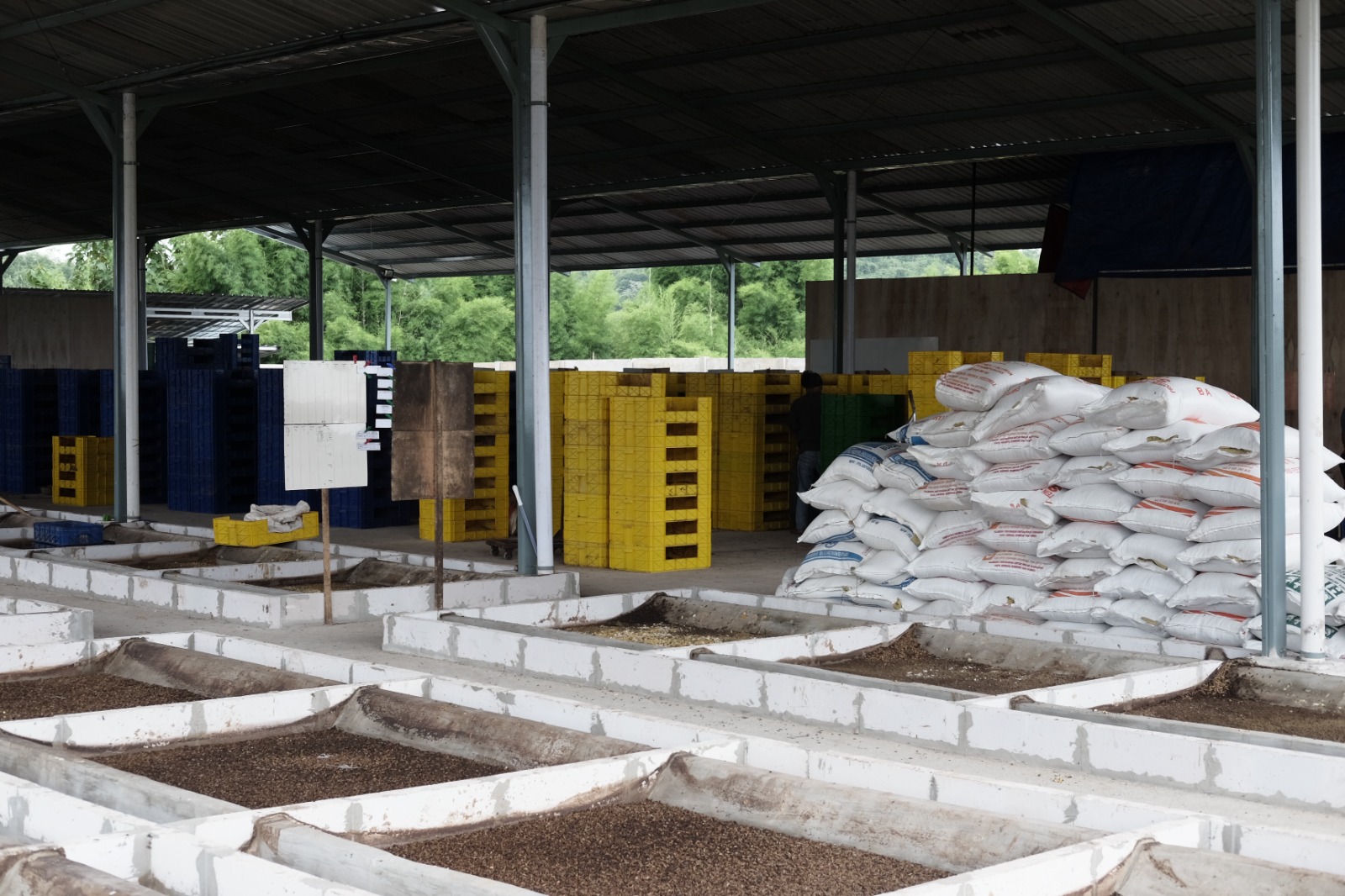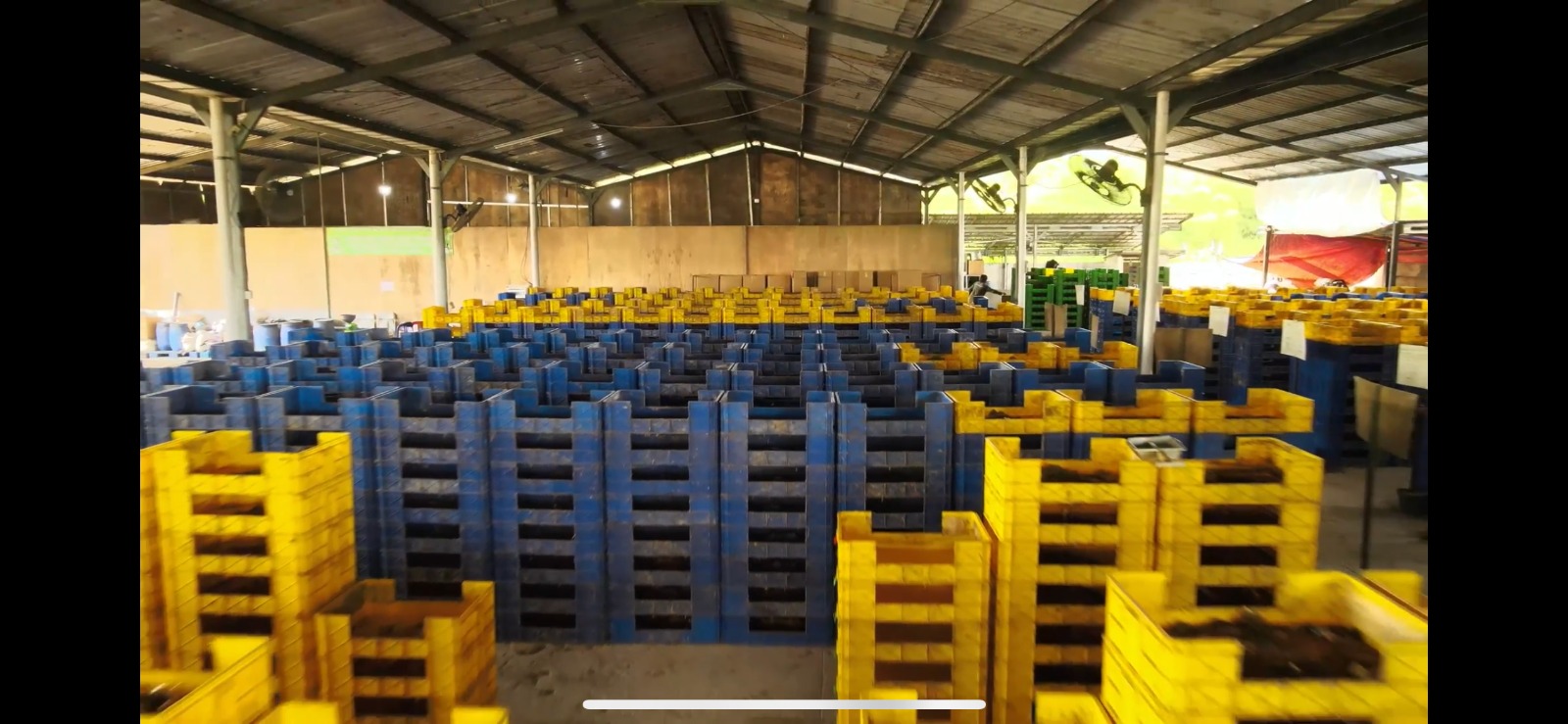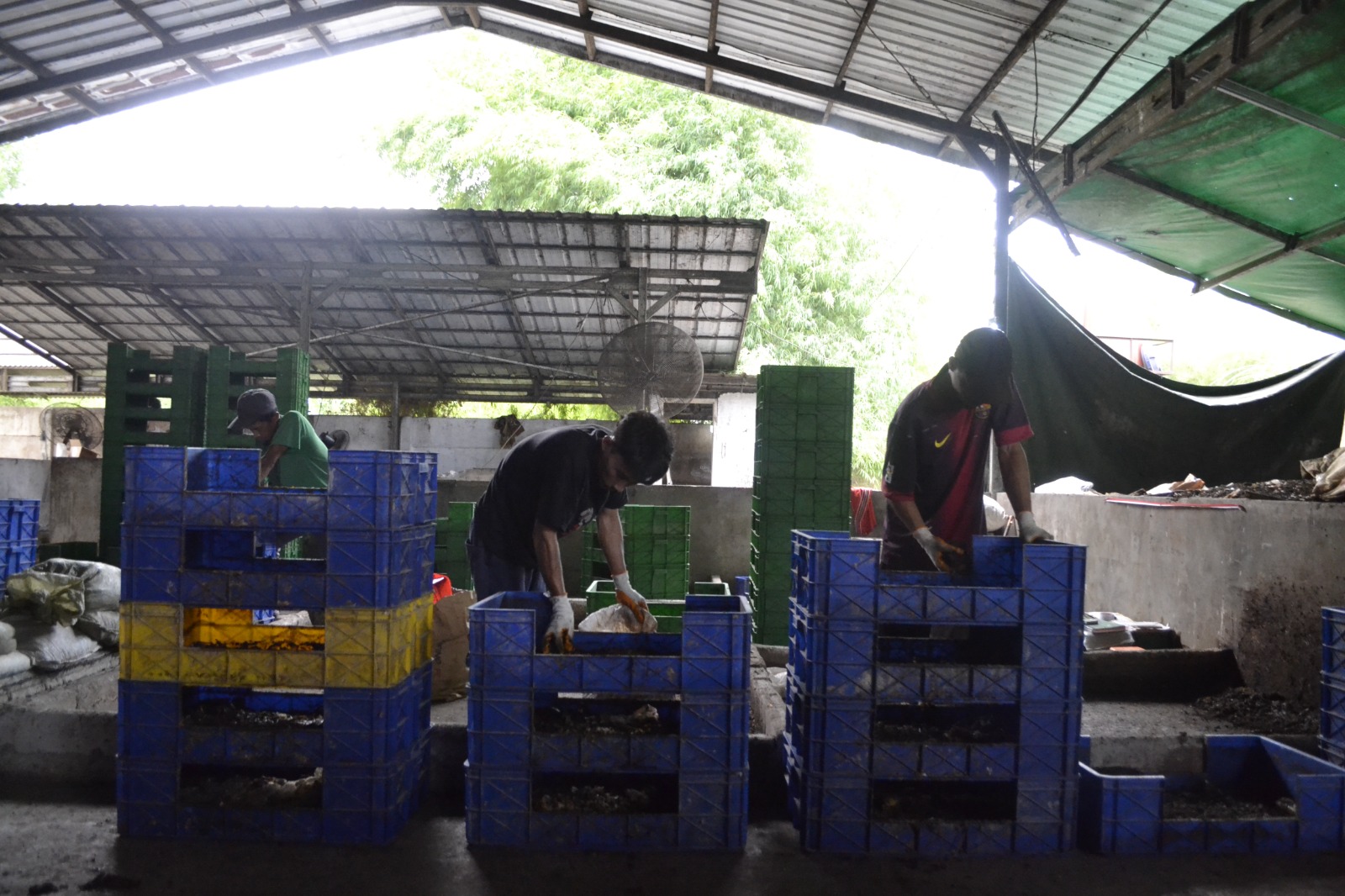Pioneer of industrialization of BSF larvae, Magalarva reduces organic waste into super food for animals
Magalarva has received initial funding from Salim Group's Innovation Factory and Gree Venture, as well as the Bali Investment Club
Rendria Arsyan Labde didn't expect to be exposed to smelly things sustainable farming leading him to become a larval pioneer black soldier fly (BSF) in Indonesia, via Magalarva. Previously he was blind about BSF, but now he was able to find the right and efficient formula for larvae production and even exported to various countries.
He briefly entered the property business as a sustainable housing developer. After carrying it out, it turned out that the impact that could escalate was not as massive as he had predicted. Rendria digs further starting from urban issues, encountering increasingly serious waste issues.
The waste awareness movement that has been promoted so far has only focused on non-organic waste. Even though the amount of organic waste is much greater, around 70% of the data he found. From a series of research carried out, he first encountered BSF larvae in Central Java. This type of maggot is different from what he knows so far because when it eats, it devours it so quickly.
Next, read scientific journals and study with companies abroad to find out whether this has economic value. “I validate again that this is true scalable and visibleno way. In developed countries there are already companies and they can do it. "I believe that if this is pursued, it could be a solution in Indonesia," Rendria said DailySocial.id.
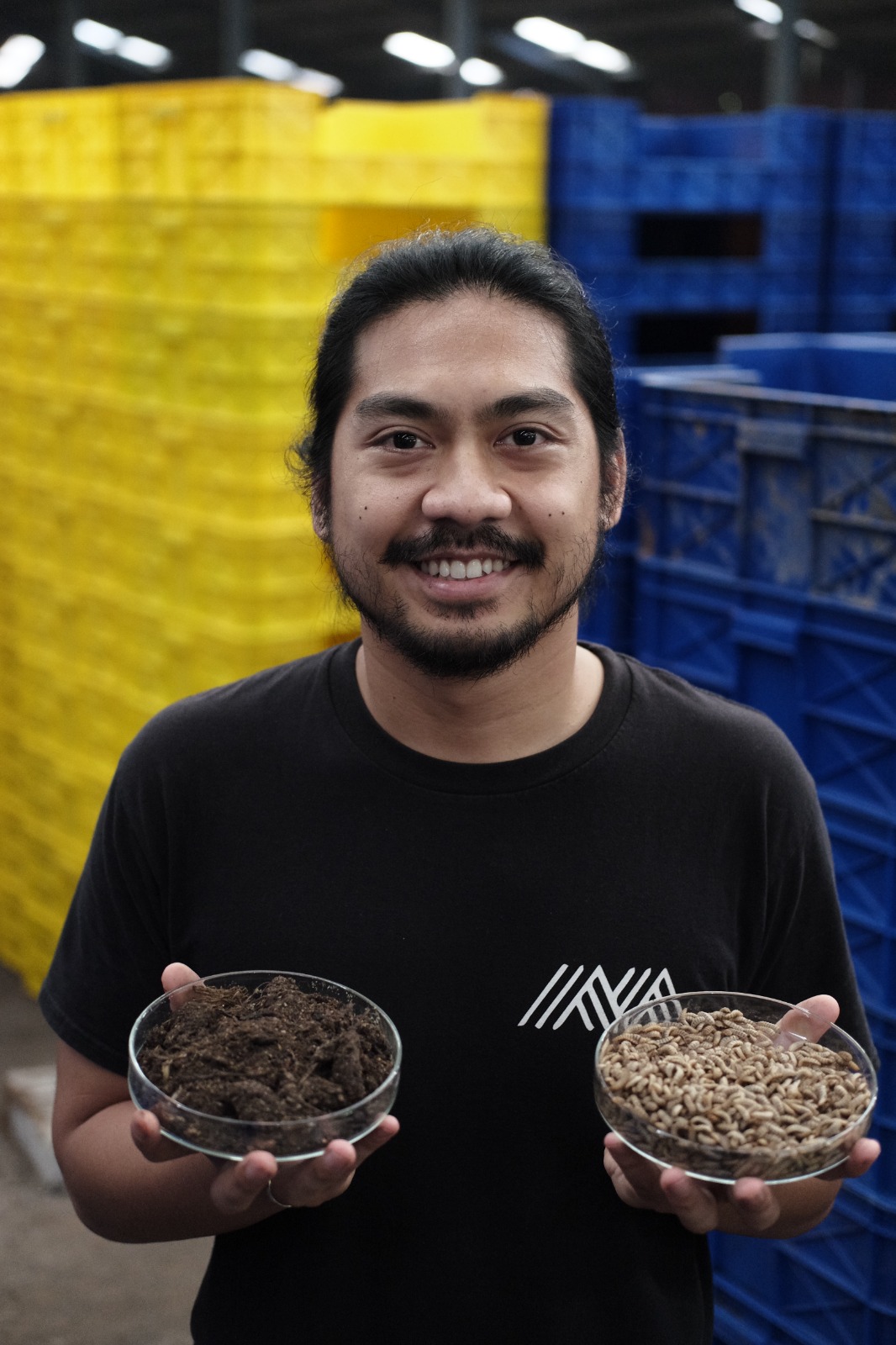
For the record, Magalarva is one of the biotechnology companies that is in the business of processing food waste into animal feed and organic fertilizer made from BSF larvae.
When it was founded in 2017, Rendria admitted that none of these cultivation entrepreneurs had entered the industrialization stage. To learn from BSF experts in Indonesia, there are no really strong ones, it's different if you want to learn about cultivating shrimp or other types of fish, there are already lots of experts.
While diving to drink water, there was countless research and trials to find the right BSF cultivation formula. Like living creatures, often BSF or larvae or maggots are not suitable for certain temperatures or foods, so they must be studied more deeply for the best results.
"Now that we have been running for five years, we believe that we are the best in Indonesia because we can get the highest cost efficiency."
BSF is considered the most effective weapon in breaking down the volume of food waste. This animal has no mouth or digestive organs. They only eat when they are still larvae and only eat rotting animal or plant remains. One BSF larva can eat four times its body weight, the time needed to consume a large volume of snapper food is only around 2-3 days.
After that, the larvae will excrete what they eat to become fertilizer. Some of the larvae are farmed to become flies, others are dried to become animal feed. Dried BSF is usually used for export needs. Apart from being given directly to animals, dried maggots which have been further processed into flour and oil can be used as a feed supplement.
The metamorphosis cycle starting from fly eggs until BSF mating takes approximately 41 days. “We harvest the maggots alive. We process it in the factory to wash and dry it. The results of these dried maggots source of high protein which is really needed for animal food, whether fish, chicken, shrimp, can be used directly or as a mixture."
In the first year, Magalarva managed 50 kilograms of waste a day. Now the figure has doubled to 200 tonnes a month, all processed directly at the food waste processing factory located in Gunung Sindur, Bogor Regency.
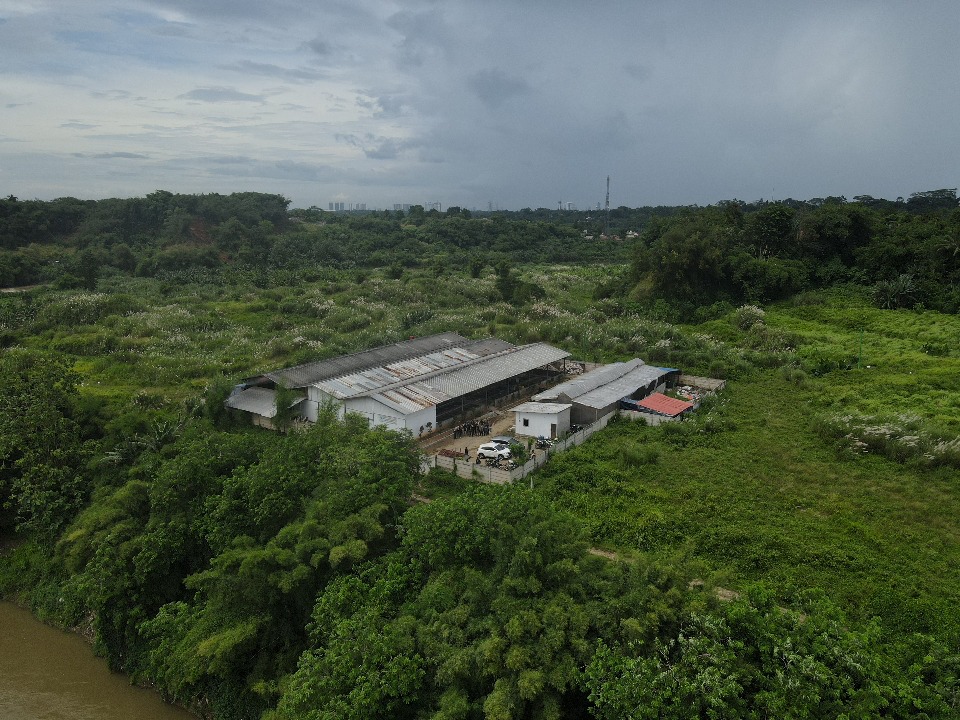
The accumulated waste that has been processed since 2018 until now has reached 5 thousand tons. The most important thing is that this increased capacity can make Magalarva production costs much more efficient, down to 70% and can sell BSF at more affordable prices.
Waste sources are taken from company partners, such as milk producers (Cimory, Indolakto), the Environmental Service, startups waste management (Recosystem, Waste4Change), to traditional market managers (Kramat Jati Main Market). “Beautyits here. Instead, compete, we are the solution for them because food waste what is collected, we process it. We offer service and value we go to them."
"This is in accordance with our mission to reduce waste as much as possible, although this figure cannot yet be provided impact the big one. But we have done something real.”
Company plan
Harvest sales are carried out by the Magalarva team in various forms, both B2B and B2C. The company collaborates with local entrepreneurs to become distributors/reseller. Usually they are pet food shop owners, whether for koi fish, bird and chicken hobbyists.
Apart from that, it has also exported to South Korea, Japan and Singapore. Rendria aims to routinely export up to two containers in the future, each with a capacity of 15 tonnes per container. The countries that will be targeted are the United States, Latin America and Southeast Asia.
Rendria admitted that his party is currently raising a new round of funding to buy new equipment and increase the factory area. “Now we are flooded order but we need it capital to increase capacity because the current one is stuck."
Apart from increasing exports, the company plans to enter other industries, such as shrimp and poultry farming, so that the absorption of harvests can be more massive. These two industries also have no less large market potential.
For the record, Magalarva has been supported by a number of funding from investors. First obtained in June 2019 from the Innovation Factory owned by the Salim Group and Gree Venture, the nominal amount received was $500 thousand. Then at the end of 2022, it will receive additional injection from the Bali Investment Club.
The homework for Magalarva and friends like him is still so big.
Ministry of Environment (KLHK) Waste Management data states the volume of food waste or food wastereach 28,5 million tonnes or 40,6% of the total landfilled waste in the country in 2022. Waste from households is the largest contributor with a percentage of 38,3%.
Other supporting data from Bappenas states that Indonesia threw away 23-48 million tons of food waste per year during the 2000-2019 period. Food waste This causes economic losses of IDR 231 trillion-IDR 551 trillion per year. However, socially, this loss can actually feed 61-215 million people per year.
In terms of environmental impact, organic waste is the largest contributor to greenhouse gas emissions in the form of methane gas. This gas has global warming potential with a devastating effect, namely up to 28 times greater than carbon dioxide.
Sign up for our
newsletter
